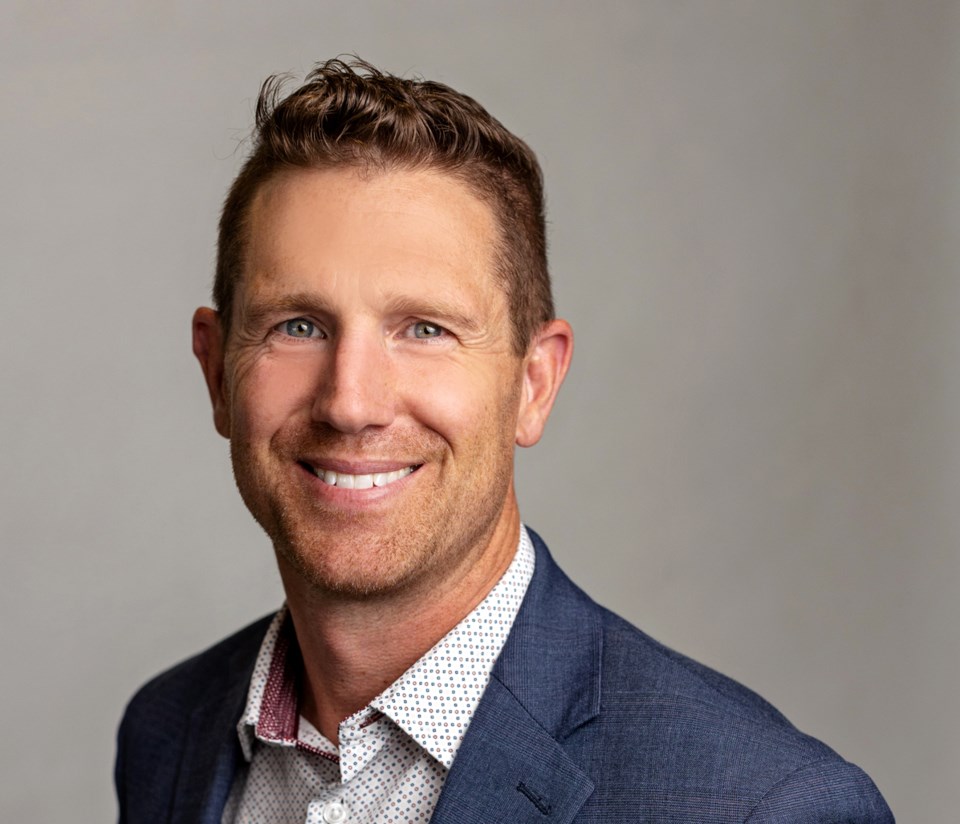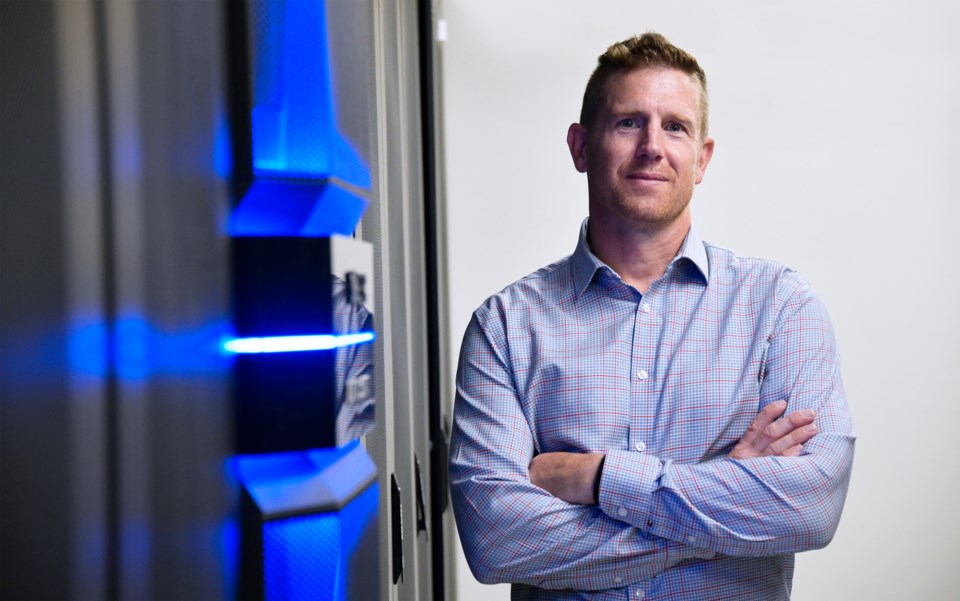In February 2020, Dave Brewin landed in his position as regional chief information officer at Barrie's Royal Victoria Regional Health Centre (RVH) to lead a massive transformation that is expanding responsibilities and opportunities at the local hospital and for its health-care partners.
“Our team has grown not because of the pandemic but more because of a big digital transformation we went through right in the middle of that pandemic,” he said.
Brewin says the RVH and its hospital partners – which include Collingwood General and Marine Hospital (CGMH), Georgian Bay General Hospital (GBGH – Midland) and Headwaters Health Care Centre (HHCC – Orangeville) – went from a lot of paper processes to not very much paper at all.
“We look after all of what we call ‘digital health,’” he explained. “It’s not a small operation.”
Brewin and his team handle all of the innovations around digital health, which involves any information systems used by doctors, nurses, lab techs, and other medical staff, as well as back-end systems, such as financial and human resources systems.
“We also look after all of our connections to Ontario Health and the patient data that flows with our partners and affiliates," he added.
Brewin’s ever-growing portfolio includes more than 1,000 servers which his team members operate out of four different data centres, along with a huge number of desktops, laptops, mobiles, and medical devices.
“Probably 90 per cent of these devices are basically a computer and a medical device all at the same time, with data that comes out of them and goes into our systems through Wi-Fi," he said.
Brewin says he has pulled together many clinical teams to help set up applications.
“We have 20 different regional committees that we work to build standards across the region," he added.
Brewin says the network continues expanding as more providers are brought into the fold.
“We have been working on a project with some local hospices to bring them on board so that we can address some of their clinical information system needs," he said.
A lot of new applications, tools and people have been added since his arrival, he noted.
“As we digitize more information, we need more servers, infrastructure and cyber-security," Brewin said.
Cyber-security is one expertise that's in high demand at RVH, he said, as the hospital is taking a larger responsibility in the region.
“It’s hard to find people for cyber-security roles, because this is an evolving field and having that health-care and cyber expertise is a tough one," Brewin said.
Clinical informatics specialists – who work on tasks such as configuring the digital health systems to support clinical workers on the front lines, and systems integration specialists – who work on, for instance, solutions and programs to share data with Ontario Health, are also in demand.
“Digital health teams are always needed because there's always something new and we have staff turnovers," Brewin added.
Brewin says both technical or medical backgrounds are sought for these roles.
For instance, he says a cyber-security expert has a background much heavier on the technology side.
“They don't need to know as much about nursing or physician workflow," he said.

As for the role of clinical informatics specialist, he says the opposite is true.
“We have a number of pharmacists and nurses that work with us because they are clinically savvy.”
Brewin believes that digital health gives the edge that future employees look for.
“We're lucky in the sense that we can entice people to come here not only because we have a great organization, but also some really cool technology we work with," he said.
Looking further into the adoption of new technologies, Brewin says patients want to more and more be treated like a consumer, so innovations are needed to support that.
“They want applications to interact with the health-care system, very similar to interacting with Amazon or any of the other apps they use on their phones," he said.
Brewin referred to recently launched ‘my health care,’ a portal that provides RVH patients with online access to their electronic health record from all four of its partner sites.
“Our patients can now log in, download an app and access information such as results for lab test, MRI, CT, and discharge notes," he said.
His team is now working on creating health information exchanges to allow RVH to connect to far more data on a patient, such as records from their family and doctor's office.
“Our clinicians will be much better informed about the history of the patient when they are showing up or are scheduled for a visit at the acute care site," he said.
Having that data tied with an artificial intelligence (AI) type tool set, he says, will also speed the ability to pull the data together and to help analyze each patient.
Brewin says his team has been heavily investing in laying down a great foundation in order to be ready for the digital transformation that's upon us with health care.
“We can’t have AI without having a system for the AI to work with. AI needs data to feed into it.”
